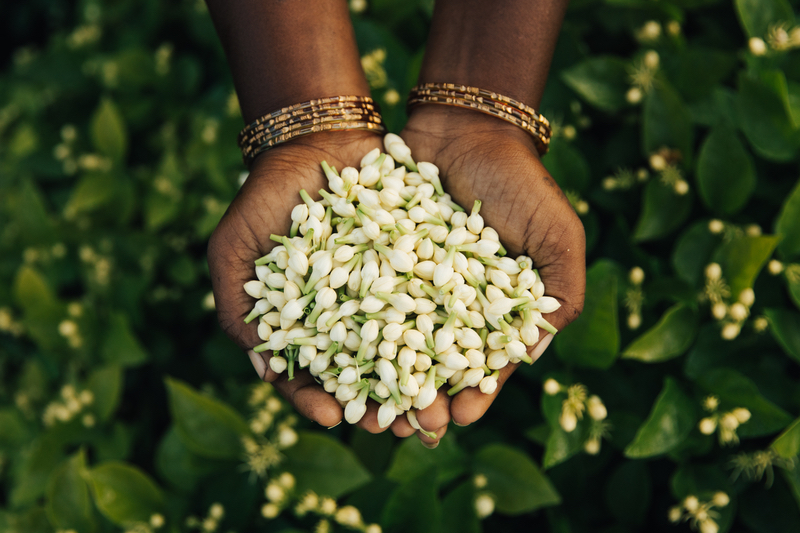
Juliet Fairclough, Sustainability Manager Fragrances at Givaudan, started her cosmetics career by joining Unilever as a graduate trainee in the 1990s, working her way up the career ladder, the industry veteran is now a leading voice in eco-conscious business.
After joining Givaudan in 2007, initially as Innovation Process Manager, she has been the fragrance manufacturer's Sustainability Manager for more than a decade.
Fairclough is supporting Givaudan's journey to become receive the ethical B Corp certification, signalling a new kind of business that balances profit with planet-friendly decisions.
In association with CEW UK, Fairclough talks to Cosmetics Business about how she forged a career in sustainability and what an eco-conscious fragrance industry actually means.
What does your day-to-day role involve?
I am one of the privileged people whose day to day role is never the same, which I find engaging, interesting and it keeps me on my toes!
A big part of my role is to link with internal teams and leaders from many functions around the globe – engaging on how we integrate sustainability further into our strategies and day to day ways of working. I also join our sales teams in dialogue with customers on how we can best support their sustainability journey.
I am very proud that Givaudan launched our purpose at the end of 2019 – ‘creating for happier healthier lives, with love for nature. Let’s imagine together’ which has sustainability embedded throughout.
Also, that we are on our journey to become B Corp certified, strengthening our commitment to be a force for good. With these ambitions I am working with many functions and leaders to further refine our approach to positively impact people and planet.
How did you get into the fragrance industry, and specifically sustainability?
I joined Unilever in the mid 1990s and was lucky enough to have the choice of Unilever companies in which to start my career. The world of scent and taste (Quest was a Unilever subsidiary at the time) attracted me and I find the fragrance industry to be fascinatingly complex, full of exciting opportunities and a passionate environment for ongoing learning and problem solving. I love it!
For sustainability I have always had an interest in balancing the planet, people and profit (my university dissertation was in environmental accounting).
As my career developed in the areas of project management and business partnership with research and development, it was a great platform to step into the role of sustainability at Givaudan. 10 years on and I have not looked back!
What are some of the latest advances in sustainability relating to fragrance?
Sustainability is not only about environmental themes but also the impact on people and society. The United Nations Sustainable Development Goal 3.4 refers to ‘..... promoting mental health and wellbeing…’ which we do via fragrance impacting emotional and behavioural aspects.
Givaudan’s most recent fragrance design technologies in this field of supporting health and wellbeing are VivaScentz (promotes wellbeing) and DreamScentz (enhances a good night’s sleep).
From an environmental perspective we have been applying the principles of Green Chemistry for a long time and Givaudan now uses the FiveCarbon Path – our vision that drives molecule development – to ensure our commitment to protecting the planet.

Jasmine: Image via Givaudan
What would you say the fragrance industry struggles with most regarding sustainability?
A tough one to navigate is that consumers often have the belief that natural = sustainable. Natural ingredients play an important role in creating wonderful fragrances and the associated income supports the farmers harvesting these precious ingredients.
However, we need to be respectful of nature and selective in our usage of natural ingredients. It is important to recognise that natural ingredients are not always the most sustainable (think about water usage in dry areas, use of pesticides, utilising land better placed for food crops).
This is why Givaudan has launched its Naturality platform, enabling the design of our fragrances ‘with love for nature’.
What do consumers want from their fragrances today?
Increasingly consumers look for a product with sustainability credentials and from a company they can trust. Many consumers seek fragrances that link to nature, but overall they want a fragrance that makes them feel safe, is good for the planet and connects emotionally.
Consumers also seek additional benefits like health and wellbeing, for example Givaudan MoodScentz platform which creates fragrances that impact how people feel.
What advice would you give to a new fragrance brand owner that wants to build sustainability into their business plan? What should be their priorities?
Embedding sustainability into the mindset of the company enables the company to consider sustainability throughout their strategy – considering impact at design stage through to manufacturing and end of product life.
I lead the panel of judges for the CEW Responsible Beauty Award and those entries which take this approach certainly stand out!
I also would advise reference to the United Nations Sustainable Development Goals which is a comprehensive framework allowing all organisations to contribute progress to the most pressing challenges that are faced environmentally and socially.
How has Covid-19 impacted the wider fragrance industry?
Understandably Covid-19 has increased consumer demand for cleaning and hygiene products, for which the fragrance industry is part of the supply chain.
In the personal care segment consumers are increasingly interested in self care products with a focus on health and wellbeing. We have also seen that our customers are accelerating sustainability in their agenda as society becomes more aware of environmental impacts on our planet.

